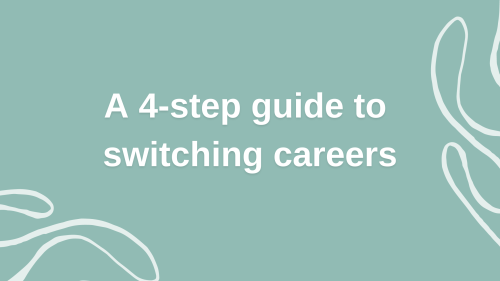
5 Things You Must Know About the Workplace Culture in Saudi Arabia
The country of Saudi Arabia is famous for its oil exports. Still, very few of us know lucrative job opportunities there. Highly paid jobs accompanied by exciting fringe benefits are the welcome features of the Kingdom of Saudi Arabia.
Let us tell you an exciting fact about the Saudi market.
According to a 2018 Gulf News survey report, Saudi Arabia is the highest salary paying state in the gulf with an average monthly salary of $8560. Despite the lucrative offers, job seekers tend to hesitate in applying to Saudi companies due to hardcore Islamic laws.
More than 13 million expats are working as the economic backbone of Saudi Arabia. Surprisingly, 9.4% of expat women are also a vital part of Saudi Arabia’s workforce. That clearly shows that there is a huge potential for female talent in Saudi Arabia.
Recent Changes in the Corporate Culture in Saudi Arabia for Female Employees
Saudi Arabia may not be a popular work destination among the female job seekers, but the things are improving for good. According to The World Bank report of “Women, Business, and the Law 2020” Saudi Arabia topped the charts in implementing the reforms for women empowerment.
Newly introduced reforms give financial and personal liberty to women over 21 years of age. The Saudi government is also making an all-out effort to reduce gender-based pay gap and financial disparity.
Is Saudi Arabia worth a try for female job-seekers around the globe?
Gina is an American expat who is living in Riyadh, Saudi Arabia since 2011. She is a US Navy veteran, and her job hunt brought her to the KSA. In an interview, Gina shared “the expat community in Riyadh is great, and it helped her transition to the Middle Eastern lifestyle during her job. The women-only spas, horse riding and 18 hole golf parks are her favourite places.”
You may not find the crazy entertainment options in KSA, but it is a decent place to find highly paid jobs.
Why Saudia Arabia has Different Workplace Norms Than Other Countries?
The kingdom of Saudi Arabia has a Muslim majority of 93%, and Islam is the official religion. Like the entire Middle East, the corporate culture in Saudi Arabia is also heavily influenced by Muslim culture. Don’t be surprised when you get accustomed to Arabic words like Insha’Allah, and Alhamdulillah during your Saudi Arabia tenure.
Let us get you accustomed to the unique cultural workplace norms of Saudi Arabian corporate culture.
1. Unique Working Hours
Sunday is undoubtedly the best part of the week, but not in Saudi Arabia. In Islamic tradition, Friday is a sacred day, and Muslims observe a grand prayer every Friday afternoon. That is why the Saudi working days starts on Sunday and ends on Thursday.
The 9 to 5 job model does not fit in the Saudi corporate culture due to long breaks. Most offices have 8 am – 6 pm/7 am – 7 pm work hours, including the refreshment breaks.
As being an expat, you might have to burn the midnight oil to do your job successfully. Majority of Saudi companies do not prefer a remote working environment. However, the ongoing pandemic has also introduced the remote work concept in Saudi Arabia.
Furthermore, the workload and hours reduce significantly in Ramadan. Ramadan is a holy month and Muslims fast in Ramadan from dawn to dusk. That is why work hours might reduce to as less as 30 hours in Ramadan.
2. Language Difference
Saudi Arabia has a diverse workforce, including the 75% expats. Along with the local Arabs in the higher positions, you will also have to develop a cordial relationship with your peers.
Saudi Arabian companies own a huge share of foreign employees. That is why being only proficient in English may not work best in Saudi Arabia. It would be best to learn some basic Arabic terms to acclimatise with the Saudi culture.
These are some of the famous Arabic terms you will hear every day in Saudi Arabia.
Assalam Alaikum is a formal Islamic greeting. It means ‘Peace be upon you’ and it’s the perfect substitute for saying Hi.
Example: Assalam Alaikum! How may I help you?
Walaikum Assalam is the response to Assalam Alaikum. It means ‘Peace be upon you too.’
Example: Walaikum Assalam! I have been looking forward to meeting you.
Ahlan Wa Sahlan is probably the first addition to your Arabic vocabulary when you land in Saudi Arabia. It means welcome. You can use Ahlan Wa Sahlan when someone arrives at your home.
Example: Ahlan Wa Sahlan! I’m your tour guide to Riyadh, Saudi Arabia.
Habeebi/Habeebti are the masculine and feminine versions of the word ‘darling’ in Arabic. You can use them with your friends and peers. Example:
– You are welcome, Habeebi (male).
– Where were you, Habeebti (female)?
Marhaba is one of the most commonly used Arabic terms, and you can use it to greet and welcome your guests.
Example: Marhaba, I’m so glad to see you at my home.
Khallas means the end of something. You can use it to indicate when you are done with discussion or work.
Example: Khallas, my work has been finished.
Insha’Allah is certainly the most common word Muslims use every day. It means ‘if God wills’.
Example: I’ll finish this task by tomorrow, Insha’Allah.
Hala is the non-formal Arabic greeting, and you can use it in place of hello.
Example: Hala! What is going on?
Masalamah is the opposite of Assalam Alaikum. It means ‘goodbye’. You can use it at the end of the day to say goodbye to your colleagues and friends.
Example: I will see you tomorrow. Masalamah!
Shukran is the ‘thank you’ in Arabic. The addition of ‘La’ in the start of Shukran will change it to ‘No thanks’.
Example:
- Sukran for your kindness and hospitality.
- La shukran. I can do it by myself.
Mabrook is one of the simplest Arabic terms, and it means congratulations.
Example: Mabrook! May God bless you more.
The knowledge of common Arabic terms can help you to understand the Saudi culture better.
You do not need to be proficient in Arabic to settle down in Saudi Arabia. However, the use of Arabic vocabulary in your language gives positive vibes to the people around you.
3. Prayer Breaks
Saudi business environment has a significant impact on Muslim culture. Muslims offer five prayers each day. Daily prayers hold so much importance that there is a separate break for each prayer in the office. You are most likely to see 2-3 prayer breaks each day depending on your office timings. During the prayer break, the office activities are supposed to shut down entirely or partially.
No one asks the Non-muslims to join the prayers, but most offices will go empty for 20-30 minutes depending upon the prayer’s length. You can keep working or get yourself a cup of coffee to enjoy the prayer breaks
4. No Compromise on Formal Dress Code
Saudi Arabia is known to have rigid customs which are also reflected in their workplace culture. Men are instructed to opt the formal attire during the office hours. A formal business suit with tie is the formal dress code in most offices. In formal events, you may see your hosts in traditional Arabic dress ‘Thwab’.
For females, it is best to respect the native culture of Saudi Arabia. You can wear long dresses with full sleeves. Deep necklines and tightly fitted clothes will not help you earn appreciation from your employers. Muslim women are instructed to wear a black cloak called ‘abaya’ over their clothes. However, the abaya is not part of the official dress code, and non-muslim workers can skip wearing it.
You may find Saudi workplace culture a little casual except for the dress code once you get hired. However, we advise you to stick to formal practices during the job application process. You can also use free CV builders to give a professional feel to your CV.
5. Meetings Can Start Late
Business meetings in Saudi Arabia do not start on time, and they can also exceed the assigned time limit. Saudis take a long time to get comfortable, and this also affects the duration of the meetings.
You will also notice that the phone calls and random appearances are a part of every meeting. We understand those interruptions can be annoying at times, but it is rude to show your annoyance.
It won’t be wrong to say that patience is the key to adopting the Saudi corporate world’s workplace versatility.
Bottom Line
The vision 2030 is a fantastic opportunity for female job hunters to broaden their job search to Saudi Arabia. Due to the ongoing reforms, the total number of expats has increased to 13% in the past year. The evolving workplace environment and relaxation in Saudi regulations will surely attract more expats.
Pro tip: If you are willing to apply in Saudi companies, it will be best to update your résumé. Use our online résumé builder and update your CV by using our latest CV templates.
You May Also Like

No ‘CV’ writing experience? Don’t worry because ‘Applyya’ has got your back!
July 19, 2021
A 4-step guide to switching careers
September 28, 2020

